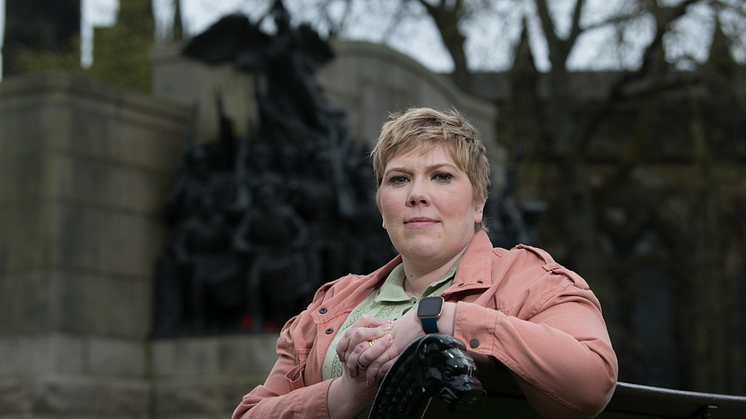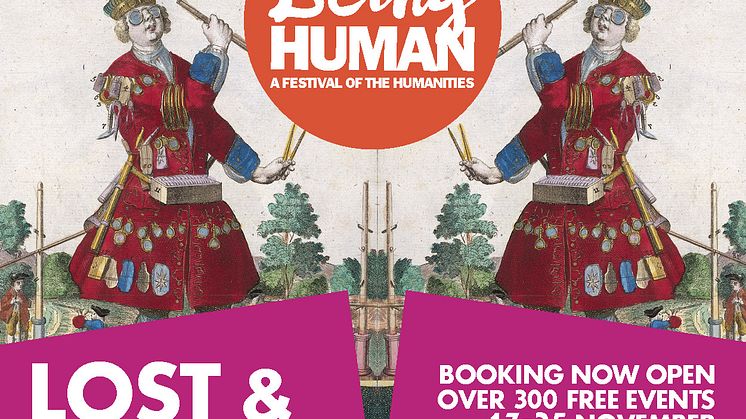
Press release -
Humanities degrees and their value
Professor Julian Wright, Head of Humanities at Northumbria University, discusses why a humanities degree is more relevant today than it has ever been.
I’ve taught history in schools and in universities for over twenty-two years. At no point in that time have the skills and values of a humanities degree seemed more important than today. The stories we tell ourselves about Britain’s place in the world are unravelling before our eyes. The need to tell a compelling and culturally relevant story about environmental change is stronger than ever. And who has the skill to explain to the wider public what fake news is and how to unpick it when you see it? These are the skills that humanities scholars develop in their research and this is what we train students to do. So when commentators talk about humanities degrees as luxuries, and humanities researchers as needing to focus exclusively on teaching, some home truths need to be set out.
Much of the noise around universities and the value of degrees has been generated through a careful campaign to disrupt the picture led by those with vested interests in promoting private universities. Fair enough in a sense – why not challenge the conversation? Certainly, how university education is paid for is a debate that we must continue to have, and university lecturers all ought to be able to articulate why we research and how we develop our students.
But as the bathwater gets splashed about, the baby is in danger. Teaching and research go hand in hand in universities. Good humanities degrees strive to inculcate independence, authority and clarity but they do so through research-led teaching. Students produce major projects that show them learning how to find new, more challenging questions in the study of society, culture, literature or ideas, and to address those questions through fresh research. They do this best when they are working with professional scholars who are facing those same challenges in their daily work. In a recent report, the British Academy underscored the economic importance of the skills that come from doing work in the humanities. The UK has a ‘strong competitive advantage’ in its capacity to lead in many service industries, and our economy is growing particularly quickly in the cultural industries. Beyond this, employers value the attributes of independence, clarity and creativity more than ever, as the report emphasizes. Those attributes are woven into the teaching we do at universities from day one, but they demand time and rigour to be brought to maturity.
In the Humanities Department at Northumbria University, we are starting a serious conversation with school leaders in our region about the value of humanities education, and as we build relationships we find many of our leading colleagues are humanities graduates themselves. The skill of being able to tell the bigger story of school, a charity, a start-up or a PR company, of locating your institution within the wider cultural context and showing how to cut through the noise and political chatter that can disturb the institution’s journey, are core leadership attributes in any walk of life.
Increasingly, universities weave work placement and employability into their programmes so that, while summers are still times when students can read more widely and develop their independent research for their final-year project, they are also getting experience of the world of work. For well-connected young people, the summer has often seen them working in ‘milk-round’ firms that may open the door to them when they apply for a permanent position. But those universities that have long encouraged a diverse intake of students believe that these opportunities should be open to all. Two-year degrees may close down those opportunities to look beyond your academic course and bring together your growing understanding of culture and society and your ambitions in the workplace.
But this conversation about the humanities is not just a conversation about career development. On climate change, on international relations, on gender, the issues of our day need addressing with clarity and with cultural understanding. Surely, we need more people in Britain, not fewer, who understand why our national story is so difficult at the moment, and who have the intellectual maturity to help us tell a better story in the future. And surely we want that better story to be told eloquently in all parts of our country. On the day of the referendum in 2016 I was at a school in Hartlepool, talking about political assassination and the defence of democracy. The conversation we had showed how passionate young people in that community are about telling a better story for British democracy. To draw out that story and train young people to engage with it is fundamental to the work of my department, as it is to the work of literary scholars, linguists and historians across the modern university sector today.
Find out more about studying Humanities at Northumbria University by visiting the Department of Humanities webpage.
Topics
Categories
Northumbria is a research-rich, business-focused, professional university with a global reputation for academic excellence. To find out more about our courses go to www.northumbria.ac.uk
If you have a media enquiry please contact our Media and Communications team at media.communications@northumbria.ac.uk or call 0191 227 4604.











